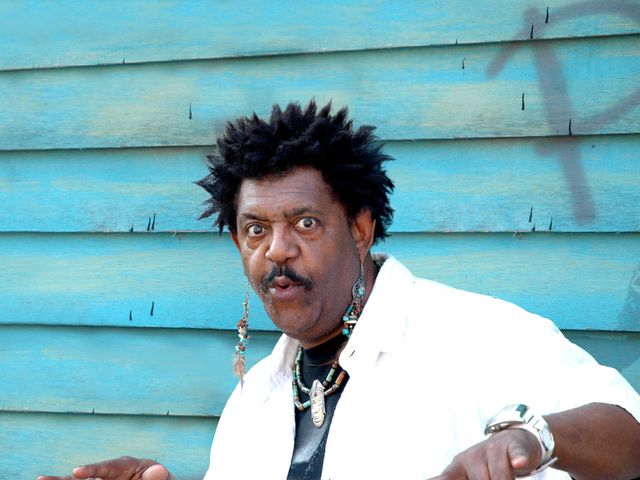Apr 8–10, 2010
Lifelines #3: Rubén Rada
Latin rock pionier, jazz-funk legend
The third round of the series LifeLines pays tribute to Uruguay's music star Rubén Rada. Since 2009 Lifelines has featured the life work of outstanding musicians, writers, visual artists and filmmakers.
Admired by Milton Nascimento and Paul McCartney, the composer, singer, percussionist and band leader’s musical career spans over 40 years, and has had an enormous influence on Latin American pop music. Rubén Rada laid the foundations for "Rock Latino" and made the Afro-Uruguayan Candombe famous across America. "El Negro Rada", born 1943, was one of the first musicians to show the decisive role Africa has played in the music of Latin America and to make it seen and heard. He set a monument to the African Diaspora on the Rio de la Plata, where many settled after the abolition of slavery. This has made him one of the most famous and controversial pop musicians in South America. In Germany his fans include the Berlin Jazz-funk collective Jazzanova which has created a special Rubén Rada program for the event.
In the '60s Rada introduced psychedelic rock music to South America with his band Rada Totem. As one of the first groups playing in that genre, the band sang their lyrics in Spanish. During the military dictatorship, Rubén Rada, like so many artists, went into exile. In the U.S., he founded with his brothers Hugo and Osvaldo Fattoruso (whose own group Los Shakers also greatly influenced the South American music scene) the fusion group Opa; today fans pay outrageous sums of money for their original album Rare-Groove-Digger. At the end of '70s, Rubén Rada returned from the U.S. to South America in the late 70s. In the following years, he released numerous albums from jazz, fusion and soul to rock and Latin pop in Buenos Aires and Montevideo. He remained closely associated with Candombe, a polyrhythmic music that was sung in the 18th Century by African slaves in Montevideo and Buenos Aires. Today Candombe is a popular art form, particularly in Uruguay.
Throughout his life, Rubén Rada has been dedicated to fighting the latent racism suffered by descendants of African slaves with his music and compositions. In celebration of the "Bicentenario", the 200th Anniversary of the independence movements in Latin America, the Haus der Kulturen der Welt invites you to discover this exceptional musician and his story. Aside from Rubén Rada and Jazzanova, the program includes the singer / songwriter Juana Molina and the jazz bassist Javier Malosetti, both from Buenos Aires. The Argentine music journalist Pablo Schanton will present a multimedia introduction to Rada’s work and his creative process.
Rubén Rada on the net
Web:
negrorada.com
Facebook:
facebook.com/negrorada
Twitter:
twitter.com/negrorada
